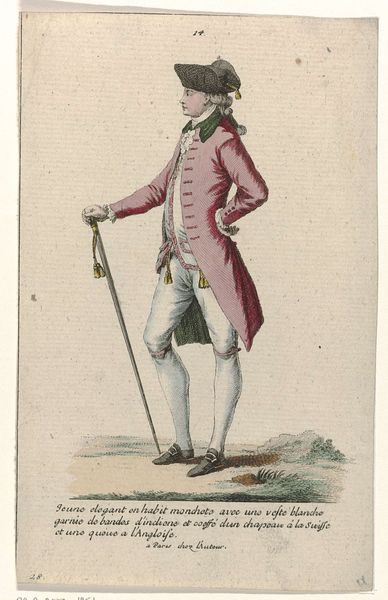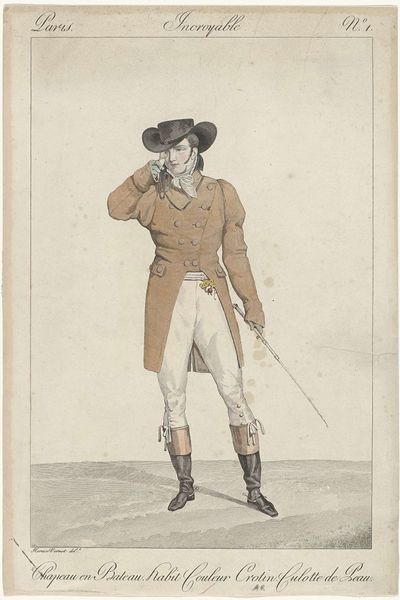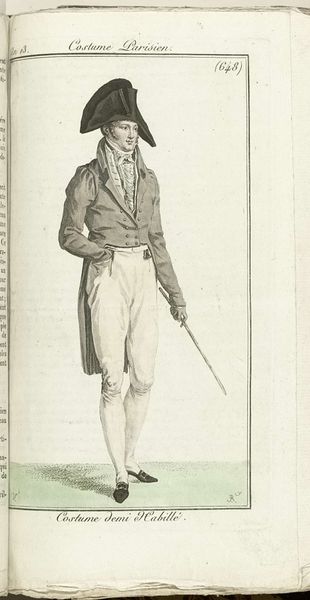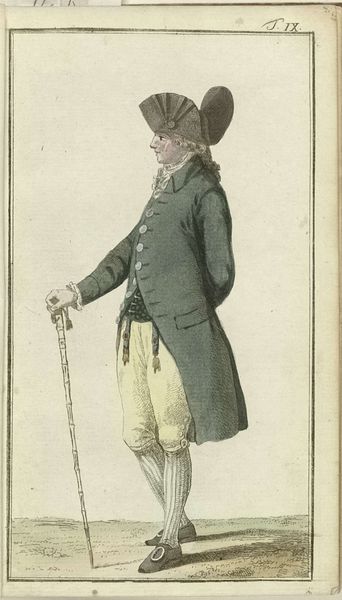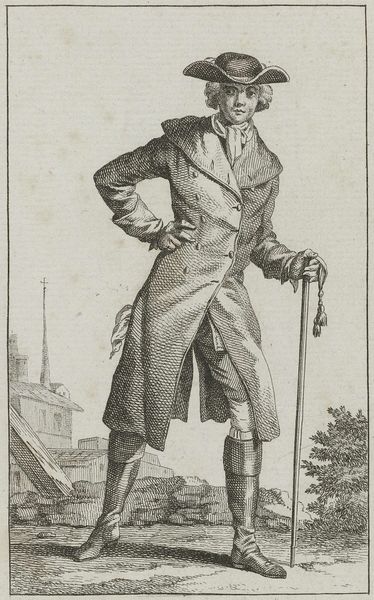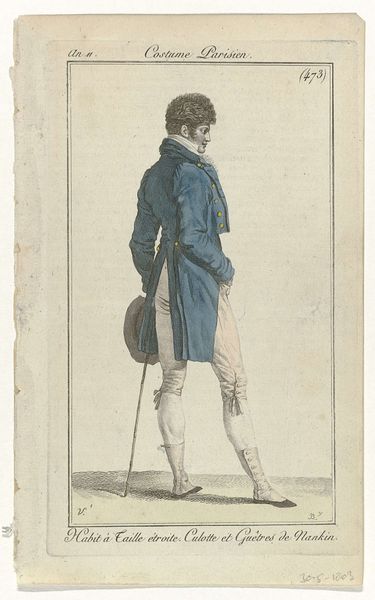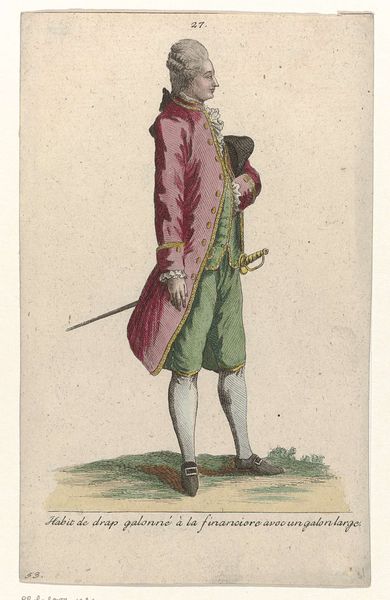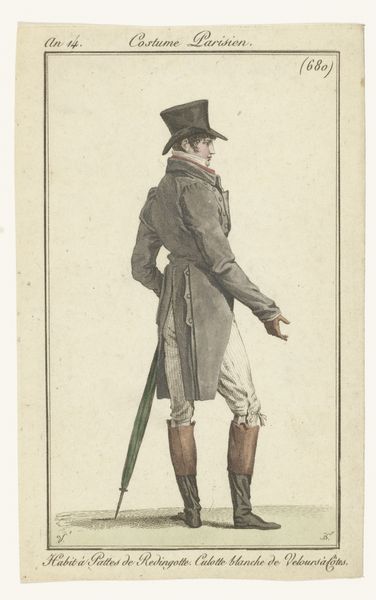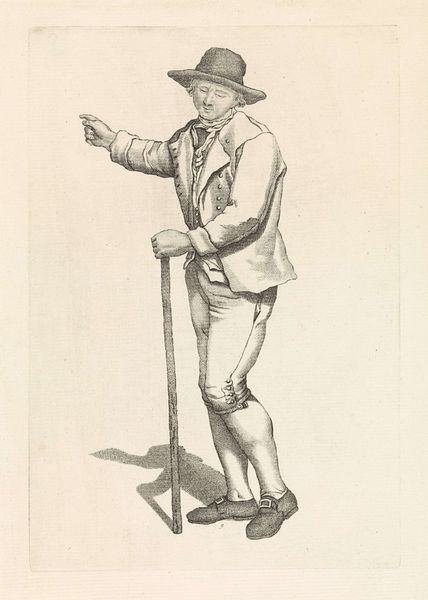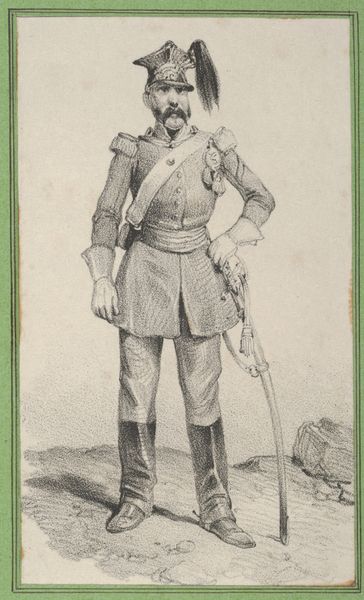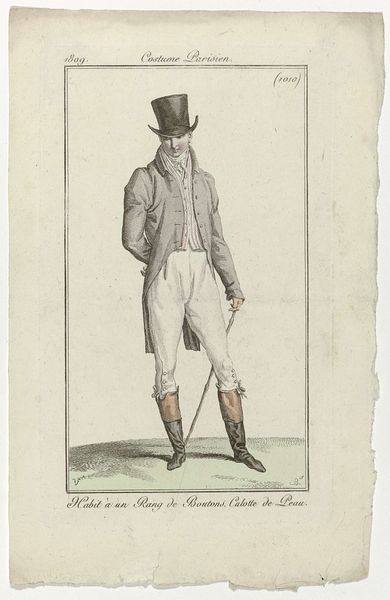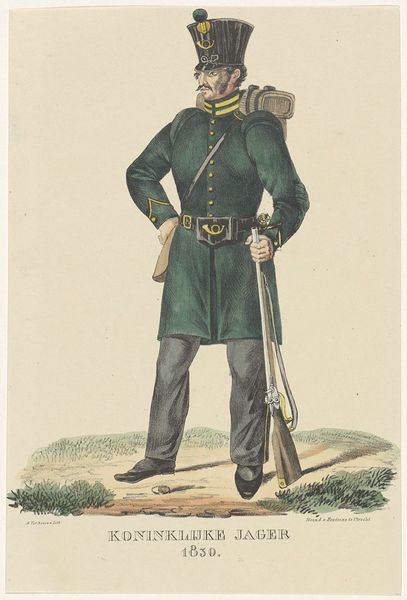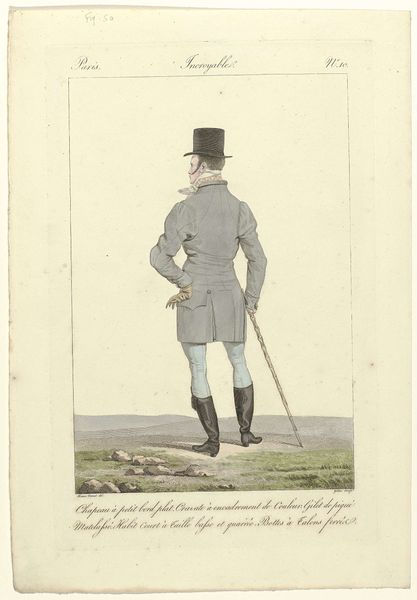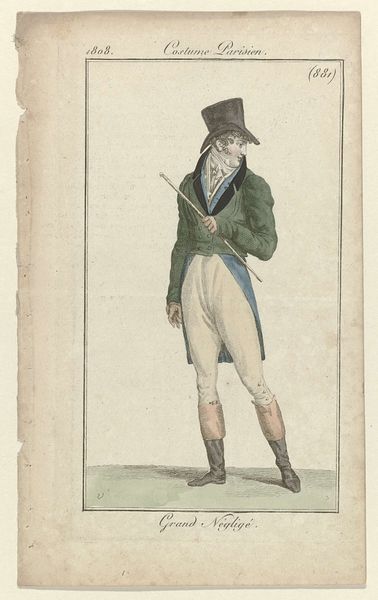
print, engraving
#
portrait
#
pencil drawn
# print
#
caricature
#
pencil sketch
#
caricature
#
charcoal drawing
#
pencil drawing
#
portrait drawing
#
genre-painting
#
engraving
Dimensions: height 217 mm, width 159 mm
Copyright: Rijks Museum: Open Domain
Editor: Here we have "Beggar with hat and stick" by Mathias de Sallieth, likely from between 1772 and 1833, a print in engraving. The lines seem so simple, almost like a sketch, but the figure’s posture really conveys a sense of weariness and resignation. What stands out to you? Curator: It's interesting to consider the materiality of this print, isn't it? The very act of creating an engraving of a beggar—someone existing at the margins of society—and then reproducing it for a wider audience raises questions. Was this intended as a commentary on social inequality, reproduced perhaps to highlight and alleviate it, or something else entirely? Consider the labor involved: the engraver’s skill, the cost of materials, and the intended market for such an image. Editor: So, you're thinking about who was making these prints and who was buying them? It wasn't for the beggars themselves. Curator: Precisely. And why? What was the function of this kind of imagery? Was it about the 'consumption' of poverty by a more affluent audience? To examine this work from a materialist perspective is to acknowledge how such representations both reflect and reinforce existing power structures and economic disparities. What does the trace of hand labor embedded within engraving reveal about the social conditions of artmaking in de Sallieth's time? Editor: It's interesting to think about this piece as not just an image, but a product of specific social and economic forces. It makes me rethink its meaning. Curator: Exactly. Focusing on the "how" and "why" of its creation, the who it was for, illuminates the art of the era, and opens paths to understanding the beggar as a reflection of society, of production and social structures that perpetuate their place at the edge. It is always the relationship between maker and made. Editor: I’ll definitely look at art differently from now on, keeping in mind not just what it depicts, but also the means and context of its production.
Comments
No comments
Be the first to comment and join the conversation on the ultimate creative platform.
